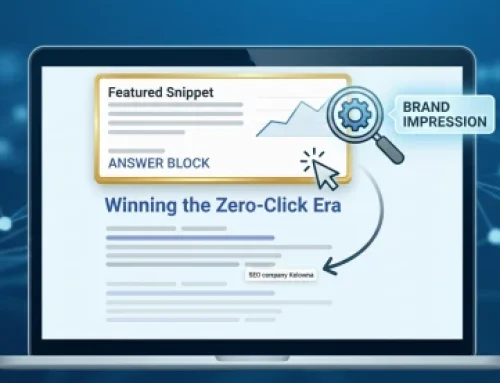 Keyword research is an essential part of search engine optimization (SEO) and pay-per-click (PPC) advertising. By understanding the keywords that people use to search for products or services related to your business, you can optimize your website and ad campaigns to attract more traffic and convert more leads.
Keyword research is an essential part of search engine optimization (SEO) and pay-per-click (PPC) advertising. By understanding the keywords that people use to search for products or services related to your business, you can optimize your website and ad campaigns to attract more traffic and convert more leads.
Keyword research should be one of the first, if not the very first, thing you do. It is important to select the correct phrases otherwise you risk your business website not ranking well, or your PPC campaign not performing as well as it should. Without proper keyword research, the chances of your website ranking competitively for anything are very slim. Further, you risk search engines having to determine what your site is relevant for, and not you.
In this article, we will discuss some of the tools and resources available for conducting keyword research.
1: Google Keyword Planner
Google Keyword Planner is a free tool provided by Google as part of it’s Google Ads platform. The Google Keyword Planner allows users to research keywords, view traffic estimates, and plan ad campaigns. To use the tool, you’ll need to set up a Google Ads account, but you don’t need to run any ads to access the keyword planner.
One of the main benefits of the Keyword Planner is that it allows you to see the search volume for different keywords. This information can help you determine which keywords are most relevant to your business and which ones you should target. Additionally, you can use the Keyword Planner to generate a list of related keywords that you may not have thought of.
As mentioned, while you do not need to run ads, you do need an Ad account, which means you do need a Google account.
2: SEMrush
SEMrush is a popular all-in-one SEO and PPC tool that allows users to conduct keyword research, track website rankings, and analyze competitors. The tool offers a wide range of features, including a keyword research tool that allows you to see the search volume, CPC, and competition for different keywords. Additionally, SEMrush offers a keyword difficulty tool that can help you determine how difficult it will be to rank for a particular keyword.
As with the Google Ads keyword research tool, you will be required to sign up for an account to use SEMrush.
Further, while you can get a free 7 day trial to test out the tool, you will need to sign up for a paid account in order to take full advantage of all the tool has to offer.
3: Ahrefs
Ahrefs is another all-in-one SEO tool that offers a keyword research feature. Similar to SEMrush, Ahrefs allows users to see search volume, CPC (Cost Per Click), and competition for different keywords. Additionally, the tool offers a keyword difficulty metric that can help you determine how hard it will be to rank for a particular keyword.
Much like other tools on this list, you can get a free trial to test out the product, but in order to fully realize it’s abilities you will need to pay for access.
4: Keyword Tool
Keyword Tool is a free keyword research tool that generates a list of related keywords based on a seed keyword. This tool is great for generating a list of long-tail keywords that you may not have thought of. Additionally, Keyword Tool can be used to research keywords for YouTube, Amazon, and Instagram.
You can use Keyword Tool for free, without an account. They also have a paid version – Keyword Tool Pro – which offers a few benefits, such as additional phrase suggestions.
5. Google Trends
Google Trends is a free tool provided by Google that allows users to see how search terms have been trending over time. This tool can be used to identify seasonal trends, changes in search volume, and to compare different keywords.
Google Trends is great for identifying upcoming search trends, as well as researching phrases based on geography.
Google Trends is free to use – all you need is a free Google account (IE a Gmail account).
6: KWFinder
KWFinder is a keyword research tool that helps you find long-tail keywords with low SEO difficulty. It’s a paid tool that offers a 10 day free trial that allows you to research keywords, see search volume, CPC, and competition, and find related keywords.
KW Finder lets you search by keyword and by domain. You will need to create a free account to use the tool.
In addition to the free version, there are paid options which offer more phrase searches per day, more competitor searches per day and more.
7: Moz Keyword Explorer
Moz Keyword Explorer is a keyword research tool that helps you find keywords that are relevant to your business, and see how difficult it will be to rank for them. The tool allows you to research keywords, see search volume, CPC, and competition, and find related keywords.
As with other keyword research tools, the Moz Keyword Explorer has free and paid versions. You will need to create a free account in order to use the tool.
8: SERPstat
SERPstat is an all-in-one SEO tool that offers a keyword research feature. It allows you to research keywords, see search volume, CPC, and competition, and find related keywords. Additionally, SERPstat offers a keyword difficulty tool that can help you determine how difficult it will be to rank for a particular keyword.
You will need to create an account, or use a login service (such as using your Google account, or Facebook account) to use the tool during the 7 day free trial0, but you will need to choose a package to sign up for before receiving your results.
Conclusion: Which Tool Should You Use?
Keyword research is an essential part of SEO and PPC advertising, and there are many tools and resources available to help you conduct keyword research. Some of the most popular tools include Google Keyword Planner, SEMRush and Ahrefs, but there are others as well as you have seen.
However, as we have shown, while many tools offer free versions to try out, you generally have to sign up for a paid account (paid monthly or annually) in order to receive results. You can use the Google tools for free, however. You just need a Google account for these.
It should be clear by now that keyword research is an essential part of any SEO or PPC campaign. If you chose the wrong phrases, or chose phrases which don’t match your website it will take much longer to get your site positioned. Further, you risk the search engines deciding what your site is relevant for. This could mean your website is not found for the products and services which are most important to you.
Let’s Work Together
TELL US MORE ABOUT YOUR PROJECT
Let us help you get your website found. Or, if you simply have a few questions, then fill out the form below and we will get back to you.

